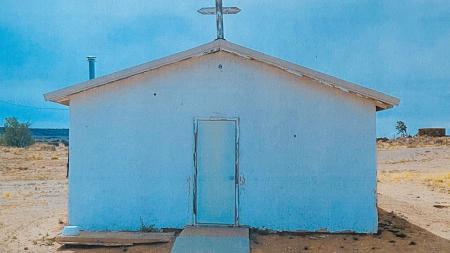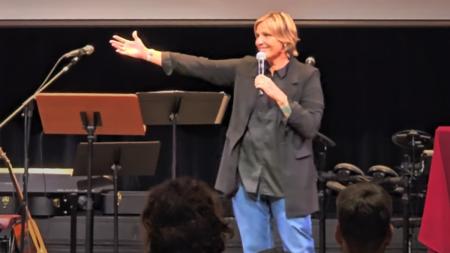Cain’s Redemption at Angola

Inmates at Angola
Louisiana State Penitentiary, also known as Angola, has a large percentage of the inmates who are either on death row or serving life sentences.
For many years, it had the reputation of being one of the most violent prisons in the United States
But that is changing, thanks to warden Burl Cain and resources being made available through Crossroad Bible Institute (CBI), says Rev. David Schuringa, an ordained Christian Reformed Church minister and president of CBI.
The penitentiary, which is the largest maximum security prison in the United States, has started to see a transformation.
Under the tenure of warden Cain, several new programs promoting moral transformation have been initiated at the penitentiary, including a Bible college and a hospice program staffed by inmates.
In the book Cain's Redemption, the warden summarizes his correctional philosophy: “I could teach [prisoners] to read and write and help them learn skills and a trade, but without moral rehabilitation I would only be creating a smarter criminal.”
The decline in violence at Angola is a testimony to the value of Christian teaching in transforming both prisoners and prison conditions, says a press release from CBI, which is recommended for support by the CRC.
Over the years, more than 600 Angola inmates seeking to make a change for the better have participated in CBI’s discipleship program.
Donald, a CBI student at Angola, explained how the program has given him new freedom and impacted his life: “Nobody has ever taken the time or opportunity to encourage and show me love. This means the world to me.”
Based in Grand Rapids, Mich., CBI is active in thousands of other prisons around the world, many with a much lower percentage of lifers. When prisoners face the opportunity to return to their communities, discipleship and religious education become even more important.
Hundreds of thousands of people are released from prison each year, returning to their communities to either start afresh or resume a life of crime. Without solid biblical principles and practical strategies for living out those truths, it can become all too easy to succumb to old patterns of living, says the press release.
“CBI has changed completely how I act toward others. Now I show everyone how special they are to me as Christ Jesus shows love to us,” says Federico, a CBI student.
Schuringa says seeking justice for prisoners at Angola is an example of CBI’s mission to bring fairness and the love of God into the lives of prisoners all over the world.
He also says that, “as important as it is to teach prisoners about the Bible, it is equally as important for the church to bring systemic change to unjust systems.”
Schuringa spoke about the issue of addressing unjust systems more fully in an interview with Peter Vander Meulen, director of the Christian Reformed Church’s Office of Social Justice, last year for Crossroad Connection.
This interview is airing again this week on CBI's web TV channel and later this month on cable. The title of the episode is "Should the Church Care About Biblical Justice?"


